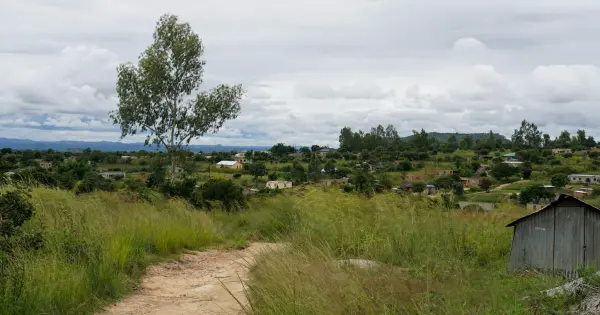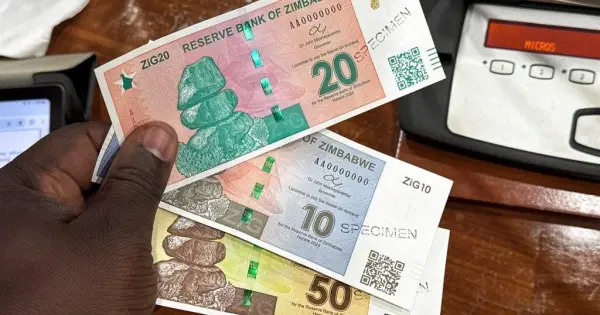If you've been scrolling through "estate agents Harare" searches or comparing "Harare real estate" listings lately, you've probably hit a wall of confusing information. One report says prices are skyrocketing. Another warns of oversupply. A third predicts a market crash.
Here's the reality: Harare's property market is complex, but it's not impossible to understand. Armed with the right data and a clear picture of what's actually happening on the ground, you can make smart decisions whether you're buying your first home or adding to an investment portfolio.
This analysis cuts through the noise. We're using real numbers from Propertybook's database of over 7,000 listings, insights from Knight Frank's Zim Property Market Update 2024, and ten years of tracking Zimbabwe's property trends since 2014. No speculation. No invented statistics. Just the facts you need to navigate Harare's market in 2025 and beyond.
The Numbers That Matter
Let's start with the big picture. Harare dominates Zimbabwe's property landscape in a way that might surprise you.
The capital holds approximately 4,800 active property listings—more than half of all listings nationwide. That represents a total market value of roughly US$55 billion. To put that in perspective, Harare's property market is worth more than many African countries' entire GDP.
The average residential property in Harare now commands about US$310,000. High-end luxury homes for sale in Harare? They're fetching up to US$2,500,000.
But here's where it gets interesting. Over the past five years, property values in Harare have appreciated by nearly 40%. That's not just market forces at work—it's driven largely by diaspora remittances and speculation as people hedge against local currency weakness.
New construction tells another compelling story. About 43% of all listings across Zimbabwe are new developments. Around 60% of those are new developments for sale in Harare, cementing its role as the epicenter of real estate activity.
Breaking Down Properties for Sale in Harare
The numbers reveal distinct patterns when you dig into specific property categories.
Residential houses dominate with 3,371 listings and an average price of US$235,000. That's where most of the action happens—families upgrading, young professionals buying their first homes, and investors seeking rental income.
Commercial properties paint a different picture entirely. Only 313 listings exist, but they command the highest average value at US$773,000, as shown by data from. Scarcity drives value in this sector.
Stand sales reveal the premium nature of Harare real estate. Premium stands for sale in Harare range from US$120,000 all the way up to US$3,300,000. For many investors, securing land represents the foundation of long-term wealth building in Zimbabwe.
The Price Reality Check
Harare property prices don't just lead Zimbabwe—they dominate it. In Q1 2024, the average price per square metre in Harare reached US$520. Compare that to Bulawayo's US$240, and you're looking at more than double the cost. The reason? Superior amenities and proximity to commercial hubs.
The residential market breaks into clear tiers that reveal buying patterns across income levels.
High-density properties—townhouses and apartments—range from US$60,000 to US$80,000. These represent entry points for first-time buyers and young families willing to trade space for affordability.
Medium-density family homes command US$120,000 to US$250,000. This segment captures the middle class and represents the bulk of transaction volume in Harare's residential market.
Luxury properties tell a different story altogether. Five to nine-bedroom homes can reach US$600,000 to US$2,900,000, with an average luxury price around US$750,000. These aren't just homes—they're statements of wealth and security.
Where the Smart Money is Moving
The most dramatic appreciation over five years has happened in Harare's northern suburbs. Borrowdale, Highlands, and Newlands have become magnets for buyers seeking secure, gated communities and alternative energy solutions like solar installations.
Meanwhile, something interesting is happening in the commercial sector. The CBD's average office rental rate sits at US$6.00 per square metre, while suburban commercial spaces average US$10.00 per square metre.That's a complete reversal of traditional patterns, indicating businesses prefer quieter, less congested zones over central locations.
The Supply Squeeze
Here's where Harare's market gets complicated. Despite high demand, supply constraints create ongoing tension.
Only 3,600 Harare properties for sale listings exist to serve enquiries from over 2,000 registered estate agents nationwide. That's roughly 2.4 listings per agent—a remarkably tight ratio that puts upward pressure on prices.
Infrastructure limitations in the CBD have pushed both occupiers and investors northward. Traffic congestion has increased by 30% since 2020, and outdated zoning laws worsen land shortages within city limits.
The solution? Gated estates like Pokugara Residential Estate are gaining traction due to security, reliable electricity from solar micro-grids, and community amenities. They're meeting the rising preference for sustainable housing.
The Rental Market Tells Two Stories
Rental vacancy rates reveal the geographic shift happening across Harare.
The CBD vacancy rate sits at approximately 60%, reflecting a fundamental shift away from central locations. That's not just high—it's a clear signal that the traditional business district is losing its appeal.
Northern suburbs tell a completely different story. Vacancy rates hover near 25% as businesses and residents migrate to Borrowdale and Highlands for better infrastructure. Smart investors are paying attention to this trend.
Economic Forces Shaping the Market
Inflation stabilized around 3.7% month-on-month by December 2024. But currency volatility continues shaping buyer behavior, pushing more cash transactions, especially in the luxury segment.
High mortgage rates exceeding 150% fundamentally alter market dynamics, according to propertybook.co.zw. They effectively sideline many first-time homeowners who cannot secure financing, concentrating purchasing power among cash buyers.
The Demographics Driving Demand
Harare's population is projected to reach 4–5 million by 2025, driven by rural-urban migration and a growing youthful cohort seeking job opportunities in the capital. This demographic influx creates sustained demand for housing across all segments.
Three-bedroom properties remain the most common configuration with 1,568 listings averaging US$159,000. They represent the sweet spot for medium-density family homes that match most buyers' needs and budgets.
High-income buyers—often from the diaspora—target 5–9 bedroom luxury homes, boosting the upper end of the market. Their purchasing power and cash availability give them significant advantages in negotiations.
What the Next 12 Months Hold
Several key factors will shape Harare's market through 2025.
Infrastructure improvements could trigger a partial CBD recovery. Ongoing upgrades to road networks and power generation, including planned solar projects, might reduce CBD vacancy rates from 60% toward 50% by Q2 2025 as some businesses tentatively return.
Property price growth is expected to moderate but remain robust. With GDP projections of 6% in 2025 and normalization of inflation, average property appreciation should reach around 20–25% annually—slower than the 40% recorded over the past five years but still strong compared to regional peers.
Suburban development will continue dominating new construction. Turnkey luxury homes and gated communities in Borrowdale, Highlands, and Pokugara should capture over 70% of new development, driven by concerns over security, infrastructure, and lifestyle preferences.
Cash transactions will remain the norm. High mortgage rates will keep cash buyers in control, with negotiation leverage potentially yielding discounts of up to 30% in select segments, especially for distressed or "as is" listings.
Where the Opportunities Lie
Despite elevated prices, several niches offer compelling returns for informed investors.
Turnkey luxury homes with an average price of US$600,000 often feature high-end amenities—swimming pools, solar back-up, and gated security. They're delivering rental yields around 7%-12% annually in prime areas such as Borrowdale and Highlands.
Sustainable housing projects represent emerging value. Developers integrating solar micro-grids and rainwater harvesting in new builds can command a 10–15% premium, given increasing buyer focus on alternative energy solutions.
Stand investments in developing districts offer higher yield potential. While stand prices in Harare range US$120,000–130,000 (US$50–55/sqm), areas like Mashonaland East (≥ US$30,000) provide better returns as urban sprawl accelerates eastward.
Your Next Steps
The Harare property market rewards informed decision-making. With the right data and strategic approach, opportunities exist across all segments—from first-time homebuyers to seasoned investors building portfolios.
Explore comprehensive listings of houses for sale in Harare at Propertybook to identify undervalued opportunities in northern suburbs and developing stand areas. For expert guidance on financing strategies and negotiation tactics, consult registered agents who understand how to navigate high mortgage rates and maximize cash buyer advantages.
Subscribe to Propertybook's Insights Bulletin for monthly updates on evolving Harare price trends, supply data, and expert analyses. In a market this dynamic, staying informed isn't optional—it's essential.
Data Last Updated: May 2025. Disclaimer: Market conditions may vary; contact a registered estate agent for personalized advice.




